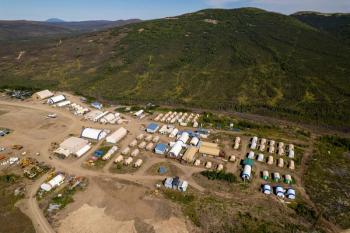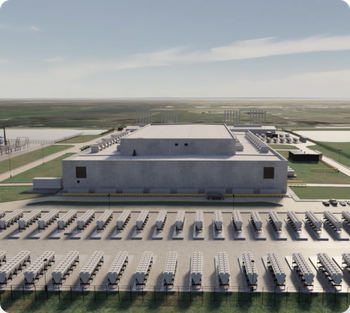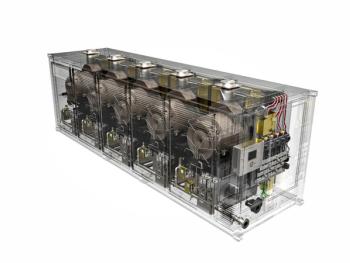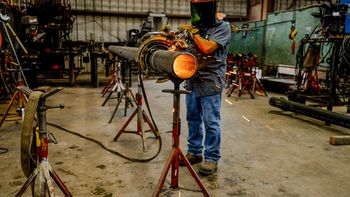
ASME show
While enthusiasm for engineering and turbomachinery was evident at the ASME International Gas Turbine Institute's Turbo Expo, it was overwhelmed by the hockey fervor that grips the city as the local Canucks fight for victory in the Stanley Cup.
The event got underway with a series of industry keynotes. Walter Di Bartolomeo, Pratt & Whitney Canada’s Vice President of Engineering, covered the impact of greater public awareness of emissions and the challenges this posed in a down economy. He focused more on the aviation side, calling for future propulsion innovation to be driven by technology rather than regulation and greater usage of biofuels.
Roland Fischer, CEO of Fossil Power Generation for Siemens, emphasized the need to integrate renewable energy with fossil generation, with gas being the ideal complement for wind and solar. The final keynote came from Gary Mercer, Chief Engineer for Aviation at GE. He characterized the 20th Century as the hydrocarbon era and the 21st Century as the era of integrated diversity.
The opening ceremonies concluded with the presentation of the 2011 R. Tom Sawyer Award, named after one of the founders of Turbomachinery International Magazine. This year’s recipient was Dr. Dilip Ballal.
At some shows, the keynotes are the main event. But at Turbo Expo they are a mere appetizer for what the thousands of attendees really come for – hundreds of in-depth presentations by leading engineers and academics on every area of turbomachinery.
Alexander Wiedermann of Mann Diesel & Turbo provided a computational and experimental analysis of an 8 MW industrial gas turbine compressor. It features a circumferential combustor arrangement, and a new cooling system with an 11-stage axial compressor based on a pressure ratio of 15:1. While a mechanical drive version is currently available, a single shaft model for power generation is coming soon, he said.
Abdulmajeed Ali from Saudi Aramco offered some lessons learned from a major gas turbine failure. Investigation revealed that a wiring defect had switched the connections so that the online water washer went on instead of the offline system, and vice-versa. With the turbine repaired and the wiring errors corrected, he recommends offline washing every three months and online washing once per week.
Nina Hepperle of Alstom Power delved into the performance aspects of degradation due to fouling, erosion, corrosion and abrasion. She divided this up into recoverable and non-recoverable degradation. The recoverable type (due to fouling) could be addressed with water washing. She showed a graphic representation of a plant losing about 1% efficiency every few months and gaining it back after offline water washing.
Stephen Hiner of GE Energy explained a process for the selection of gas turbine inlet air filtration systems based upon location, ambient conditions, fuel quality, expected component lift and other factors. His system helps specify the best system for site needs but he admitted that a commercial decision may override optimal technical solutions. For example, management may decide that the cost of some performance degradation due to dust/salt etc. was less significant than the downtime required during shutdown. Melissa Wilcox of the Southwest Research institute continued this theme with an analysis of inlet filtration life costs.
Instituted last year, the Turbo Expo maintained its wind track and added several solar sessions too. Horatio Perez-Blanco, a professor at Penn State University, utilized blade element momentum (BEM) theory to reveal differences in airfoil performance due to small variations in blade design. He suggested that a larger number of smaller blades (than the traditional three) might increase wind turbine performance. On the solar front, IGTI had a morning of sessions on solar Brayton and Rankine cycles which included GT/solar hybrid designs, reducing startup times for steam turbines harnessed in solar generation, and the use of Capstone microturbines in concentrated solar plants.
Newsletter
Power your knowledge with the latest in turbine technology, engineering advances, and energy solutions—subscribe to Turbomachinery International today.




